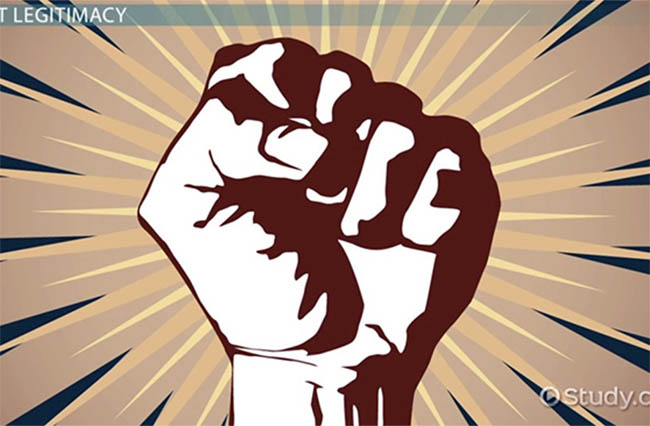In democratic states, the legitimacy is based on law, which is approved by the public representatives. Democracy is the product of modern era and advocates the rights and liberty of all individuals. The hegemony of democracy dominates human societies for supporting peace and prosperity and holding all people in respect regardless of their racial or religious backgrounds or political affiliations.
In democratic systems, people should be able to exercise their fundamental rights freely. All individuals are entitled to have freedom of thought, expressions, religion, etc. Simultaneously, freedom from intolerance, discrimination, and violence is strongly upheld by democracy. The public are urged to live a peaceful life with tolerance and the spirit of brotherhood and, in turn, leave no room for discrimination or violence. All are supposed to hold the beliefs and distinction of one another in respect based on the principle of equality. The principle of ‘human treatment’ prevails in democratic system, too, which means that degrading one or violating their dignity is against democratic principles. Hence, one’s rights to life, liberty, and estate are backed by democracy, which derives its legitimacy from law and legislation and parliament (the legislative power) is considered the beating heart of democracy.
Legitimacy based on tradition also rules a number of states in which legislation does not carry much weight or falls in the realm of royal family. In such a patriarchal system, much restriction is imposed on people’s rights and freedoms by rulers. That is to say, people are not able to exercise their rights and freedoms, particularly freedoms of speech and thought, as they should. The rulers will appoint their successors before abandoning the throne and the government is inherited from the past rulers rather than being formed on the basis of election. People’s participation in political issue is highly restricted. Such a patriarchal system still prevails in some states, including Saudi Arabia, where human rights, especially women’s rights, are under question.
The third source of legitimacy is charisma and the attraction of one’s personality. In our time, this legitimacy is widely accepted by illegitimate parties, i.e. the radical militants rather than states. For instance, the Taliban’s founding father Mullah Muhammad Omar was a charismatic leader of the Taliban and militants viewed him as a spiritual leader. He declared himself Amir-ul-Mumineen (the commander of the faithful) with the intention of claiming legitimacy.
Similarly, the head of the self-styled Islamic State of Iraq and the Levant (ISIL) was also viewed as a legitimate caliph based on his charisma. He announced caliphate and state to obtain legitimacy among the militants. Therefore, they fulfilled his decree and practiced upon his dogmatic ideology. In such a system, people will follow their charismatic leader blindly. The loyalists to ISIL, a religious cult on the verge of disintegration, followed their self-proclaimed caliphate with their eyes closed.
It is believed that militants who fight against states are not legitimate at all. They are not recognized by any states for carrying out terrorist attacks and targeting soldiers and civilians alike. Charisma will offer legitimacy to a state but not a party. But this legitimacy has been reduced and rules among radical parties.
In modern world, democratic system is supported around the globe and only democracy will alleviate the ongoing challenges and sow the seeds of tolerance and brotherhood, which will necessarily generate peace and prosperity. Democracy backs law-oriented system and derives its legitimacy from law that considers equal rights for all people. In a democratic system, all individuals, including officials, will have to practice upon law and no one is deemed beyond it.
Legitimacy on the basis of law, which prevails in democratic systems, is embraced globally and acceptable for all nations. Law is mostly approved by people’s representatives, mainly in democratic states, and let people exercise their rights and freedoms without discrimination. Furthermore, law will facilitate the public to participate in political issues. Consequently, this kind of legitimacy is supported widely.
Perhaps in one decade or two, all other systems of government will be replaced by democracy and legitimacy will be claimed only on the basis of law and legislation. To view the history of human societies, legitimacy based on tradition and charisma ruled in the past and kings called their regime legitimate based on custom and tradition inheriting the throne from their forefathers. Hence, people could play no role in their self-determination and political issues.
To ponder over this matter, two issues should be considered. First, all people should be treated equally and exercise their rights and freedoms in the frame of law without discrimination. Second, the public ought to be able to play their role in political issues. Otherwise, the state will show tendency in dictatorship which will necessarily lead to violation of human rights.
Home » Opinion » The Legitimacy of States
The Legitimacy of States
| Hujjatullah Zia

